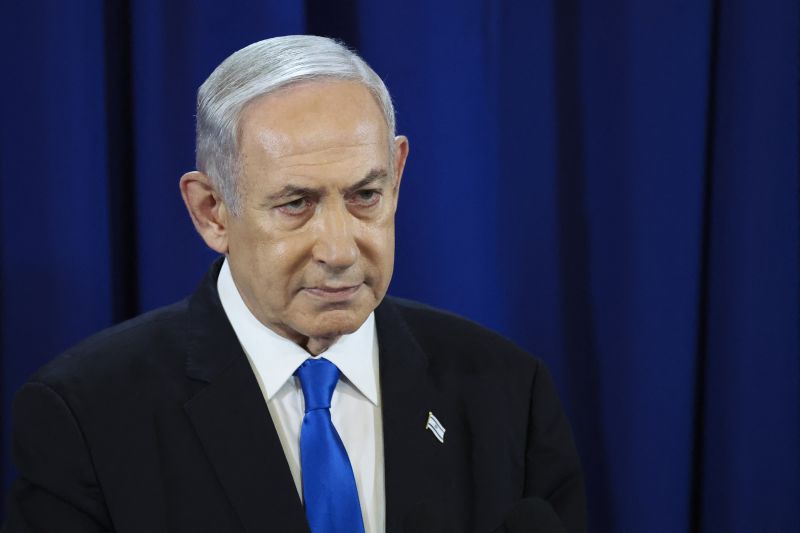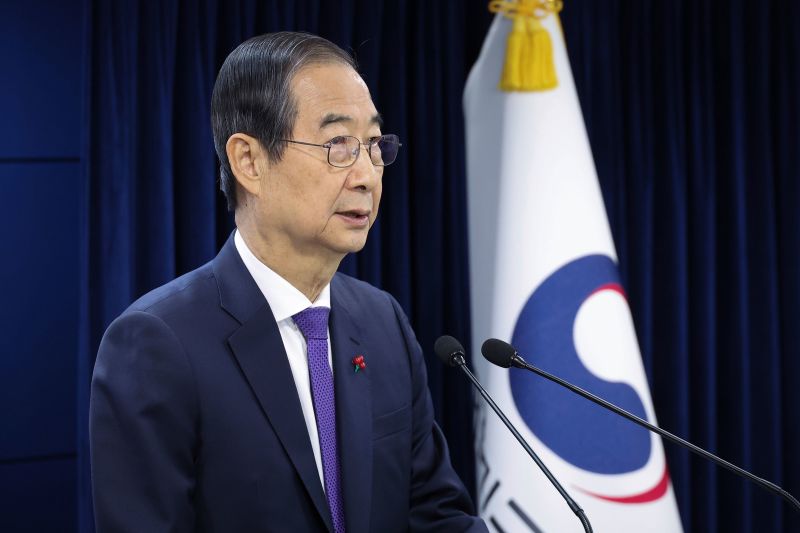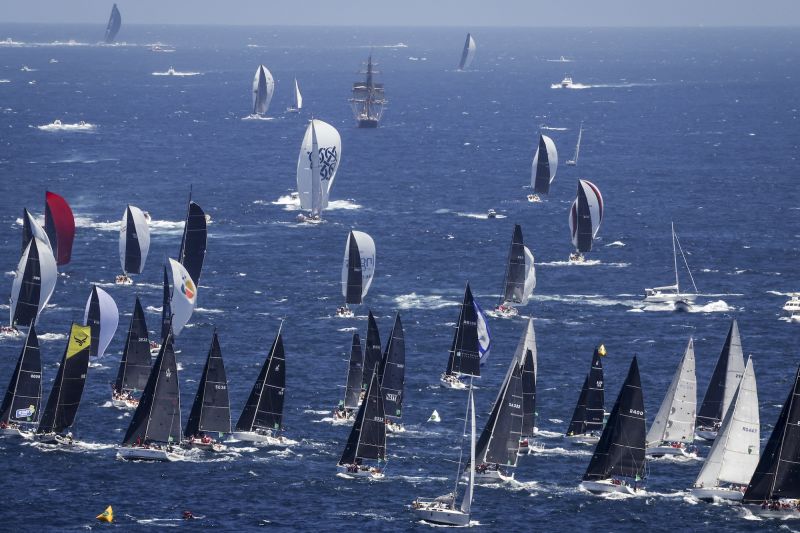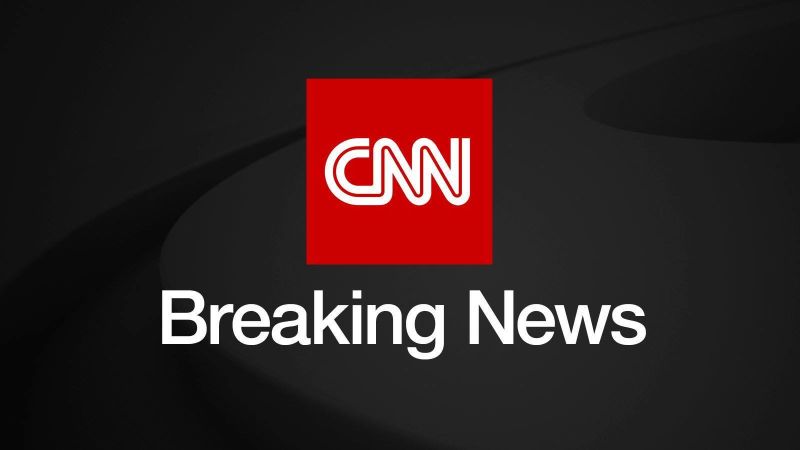Israel’s ties with Europe strained by wars in Gaza and Lebanon
Israel has been on the receiving end of scathing criticism from European leaders who are trying to restrain the Jewish state from pressing on with its wars in Gaza and southern Lebanon.
From calls for a complete halt of weapons sales to Israel and considering sanctions on far-right Israeli ministers, to talks among EU members on reviewing Israel’s Association Agreement with the bloc, European leaders are trying to use their leverage to pressure Israeli Prime Minister Benjamin Netanyahu into negotiating ceasefires.
Adding impetus to their effort is the fact Israeli military strikes are now hitting UN peacekeeping bases in southern Lebanon, which house European troops.
The bloc’s position is starkly different to what experts described as unwavering support for Israel from European states on October 7 last year, when Hamas-led militants killed more than 1,200 people in Israel and took more than 250 others hostage.
But as Israel’s retaliation against Hamas morphed into what critics call a “forever war,” killing more than 42,000 people in Gaza, according to Gaza’s health ministry, European countries have sought to distance themselves from the Jewish state.
The rising European criticism comes as the United States appears either unable or unwilling to put significant pressure on Israel just weeks ahead of the presidential election in November, experts said.
“There is a lot of frustration, in western European capitals at least, with how the US has managed diplomacy over the last year,” Lovatt said, adding that some EU states felt the US should have done more to “moderate and constrain Israeli actions.”
Last weekend, the Biden administration sent a letter to the Israeli government demanding it act to improve the humanitarian situation in Gaza within the next 30 days or risk violating US laws governing foreign military assistance.
In veiled criticism on Thursday, the European Union’s chief diplomat Josep Borrell said that too many people could die in that time.
“The US has been saying to Israel that they have to improve humanitarian support to Gaza, but they gave one month delay,” the EU foreign policy chief told reporters ahead of a leaders’ summit, according to Reuters. “One month delay at the current pace of people being killed. It’s too many people,” Borrell said.
Lebanon war ‘tipped things over the edge’
Relations were initially strained because of Israel’s assault in Gaza, Lovatt said, “which is seen by many European governments, including those who are still supportive of Israel, as having been disproportionate and in contradiction to international law.”
Israel’s ground operation against the Iran-backed militant group Hezbollah in southern Lebanon may have “tipped things over the edge” for many European states, Lovatt said. European reproach of Israel reached new levels when Israeli military strikes began hitting posts of the UN peacekeeping mission in southern Lebanon. The mission, UNIFIL, has been stationed there since 1978 and is made up of 50 nationalities, including troops from Spain, Ireland, Italy and France.
Maya Sion-Tzidkiyahu, director of the Israel-Europe Relations Program at the Mitvim think tank in Jerusalem, said that “when it comes to defending their own soldiers,” European states tend to be more vocal.
The UN has said Israel’s military has fired on its peacekeepers multiple times in recent weeks, injuring more than a dozen. Israeli forces also forcibly entered a base, and stopped a critical logistical movement, the UN said.
Israel has said it has no intention of harming the UN’s peacekeeping forces in southern Lebanon but accused Hezbollah of using UNIFIL personnel as human shields. Netanyahu has warned that UN peacekeeping forces in Lebanon are in “harm’s way,” and called on UN Secretary-General António Guterres to get them out “immediately.”
The diplomatic spat between Israel and some European leaders burst into the open this week.
In remarks that drew a sharp response from Israel, French President Emmanuel Macron was quoted as saying in a cabinet meeting Tuesday that “Netanyahu must not forget that his country was created by a decision of the UN,” according to the Paris-based Agence France-Presse (AFP). Macron was referring to UN Resolution 181, known as the Partition Plan, which paved the way for Israel’s creation in 1948.
“Therefore, this is not the time to disregard the decisions of the UN,” Macron added, according to AFP. The French president had earlier called for the complete suspension of the sale to Israel of arms used in the war in Gaza, while stressing France has not been involved in their supply.
In a statement Tuesday, Netanyahu said that “it was not a UN decision… but the victory that was achieved in the War of Independence with the blood of our heroic fighters” that created the State of Israel, adding that many of those fighters “were Holocaust survivors, including from the Vichy regime in France.”
Netanyahu added that the UN has “in recent decades… approved hundreds of antisemitic decisions” against Israel, with the purpose of denying the Jewish state the “right to exist and its ability to defend itself.”
Israel has repeatedly accused the UN, and Guterres, of antisemitism and this week designated the UN chief as persona non grata and banned him from entering Israel. The EU’s Borrell condemned the decision, calling the accusations of antisemitism against Guterres “slanderous.”
The EU and UK consider Hamas a terrorist organization and have repeatedly condemned its actions since October 7. The EU has also sanctioned the military wing of Hezbollah.
‘We have blocked everything’
Italy’s Prime Minister Giorgia Meloni also condemned Israel’s actions in Lebanon, including an Israeli military strike that hit a UN peacekeeping base where around 1,100 Italian troops are stationed.
“We defend Israel’s right to live in peace and security, but we reiterate the need for this to happen in compliance with international humanitarian law,” Meloni said Tuesday.
Italy is the third largest supplier of arms to Israel, providing the Jewish state with helicopters and guns, according to the Stockholm International Peace Research Institute (SIPRI). However, following the start of the war in Gaza, Italy suspended all new export licenses and canceled any agreements signed after October 7, Meloni was quoted as saying Tuesday by Italian state news agency ANSA.
This policy is “much more restrictive than that applied by our partners – France, Germany and United Kingdom,” Meloni said, according to ANSA. “We have blocked everything.”
Among the harshest critics of Israel have been the Irish and Spanish leaders, who have called on the EU to review its Association Agreement with Israel, saying the Jewish state is breaching the trade deal’s human rights clause in its Gaza war. Last week, Borrell said the issue would be discussed in the Foreign Affairs Council, as there is “enough evidence” to merit the discussion.
Changing the agreement would hurt Israel, Sion-Tzidkiyahu said, especially if trade is affected. The EU is Israel’s biggest trade partner, with trade between Israel and the bloc totaling $50.7 billion (€46.8 billion) in 2022, according to EU data.
In an earlier move that protested Israel’s war in Gaza, Spain, Ireland and Norway formally recognized Palestinian statehood in May. While no longer a member of the EU, Britain has also sought to restrain Israel’s behavior, most recently by considering sanctions on far-right Israeli ministers.
UK Prime Minister Keir Starmer said on Wednesday that his government was “looking at” sanctions against Minister of National Security Itamar Ben-Gvir and Finance Minister Bezalel Smotrich.
Meanwhile, David Cameron, who served as British foreign secretary under the previous government until July, told Sky News on Wednesday that he had planned to sanction the two ministers during his time in office, with the intention that it would show Israel that, while the UK supported the right to self-defense, “we do want you to try and obey humanitarian law.”
Both Ben Gvir and Smotrich rejected Starmer’s comments. Ben Gvir accused the UK of working to “prevent” the establishment of the Jewish state. “The British must realize that the days of the mandate are over,” Ben Gvir’s spokesperson said in a statement, referring to the British administration of Palestine between 1917 and 1947.
Last month, the UK suspended 30 of its 350 arms export licenses with Israel over risks of such weapons being used to commit serious violations of international humanitarian law. The decision was rebuked by Israeli officials.
German support
Experts said the EU is not a homogenous bloc, however, and its members have voiced varying degrees of criticism of Israel.
When it comes to Israel, Germany is often the exception to European policy. Berlin is the second-largest supplier of weapons to Israel after the US, contributing some 30% of Israel’s arms as of 2023. On Wednesday, the news agency DPA reported that, in the past eight weeks, the German government had approved military equipment and munitions exports to Israel worth €31 million ($33.7 million). That is more than twice as much as during the rest of the year, DPA said.
On Thursday, Chancellor Olaf Scholz said his country would continue supplying weapons to Israel.
German politicians have repeatedly stated that Israel’s security is Germany’s “reason of state.” This term is a reference to Germany’s special relationship with Israel due to its Nazi past, which saw the German state systematically murder 6 million Jews in the Holocaust. This genocide profoundly shaped the country’s policymaking.
Despite the recent tensions with the wider bloc, Sion-Tzidkiyahu said the EU’s relations with Israel “are still very strong” and remain “important to Israel.” They have not caused material harm yet, she said, but risk “taking away the legitimacy under Israel’s seat.”













